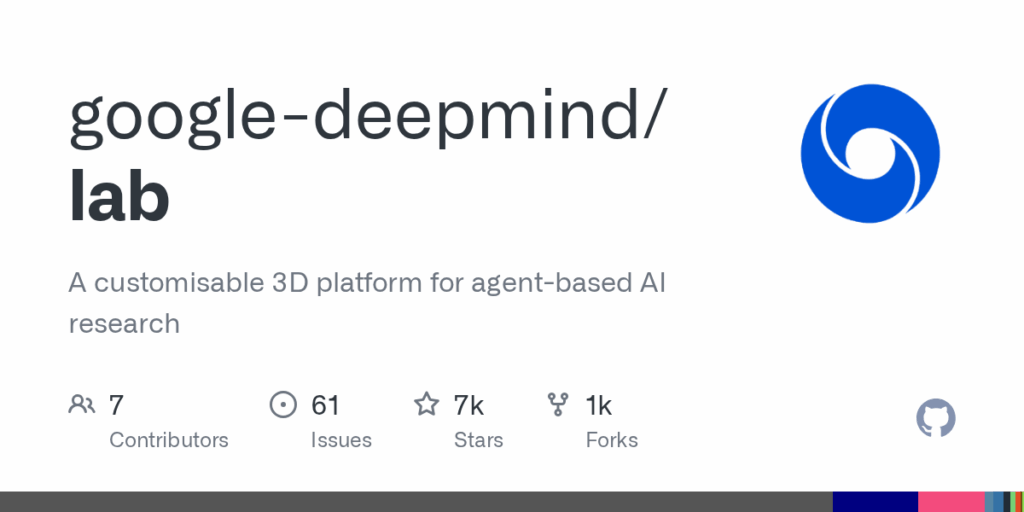lab
Basic Information
This repository is a customizable 3D platform created by Google DeepMind for agent-based AI research. It is intended as an experimental environment where researchers and developers can create, run and study virtual agents operating in three-dimensional simulated spaces. The project focuses on providing a foundation for building and evaluating agent behaviors, enabling controlled experiments in navigation, interaction and decision-making within configurable environments. As an open source research platform it is aimed at supporting reproducible studies, prototyping of agent architectures, and comparative evaluation of algorithms in realistic simulated settings. The repository serves as the upstream codebase and documentation hub for users adopting the platform for academic or applied AI research.








